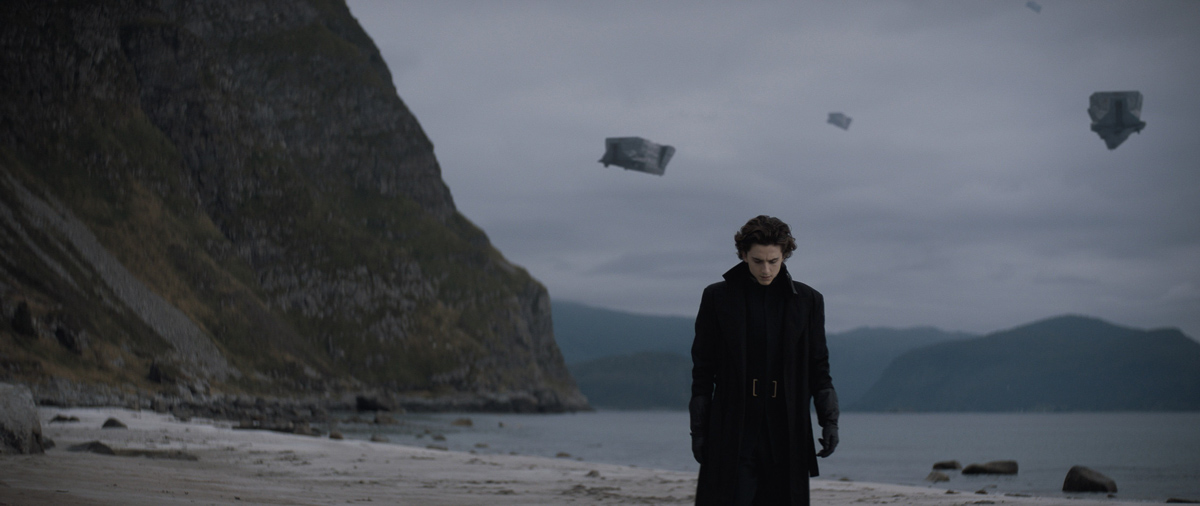Denis Villeneuve offers a masterclass in world-building, but falls short emotionally
Denis Villeneuve’s last film before Dune, Blade Runner 2049, demonstrated the director’s mastery of sci-fi world-building and emotionally engaging filmmaking. It left a tremendous impact on me, and I couldn’t wait to see him transport audiences yet again to another expansive, futuristic universe. Dune focuses on Paul Atreides, son of Duke Leto Atreides and Jessica Atreides, a Bene Gesserit. In this universe, the Bene Gesserit are a creed of spiritual women with supernatural abilities passed down from daughter to daughter. However, Jessica believes that Paul may be the fulfillment of an ancient prophecy, a boy with incredible abilities, including being able to accurately see the future. In the film, this boy is referred to as Kwisatz Haderach.
House Atreides, one of the many wealthy and powerful families within the Galactic Padishah Empire, is ordered by the emperor of the known universe sent to occupy Arrakis and take over the production of spice. Spice is an invaluable substance that allows for interplanetary travel, but acts as a psychoactive drug when consumed on its own. Arrakis was previously controlled by House Harkonnen, an oppressive, tyrannical family who cared little about the native people, called Fremen. Duke Leto wishes to change this dynamic and have peace with the Fremen, while still occupying their land for profit.
Denis Villeneuve is very skilled at world-building, which is one of the aspects of the film I enjoyed the most. The cinematography is not only beautiful, but the slow editing speed allows the audience to explore the spaces at their own pace. This is especially true for all the outdoor sequences on Arrakis, which elegantly present the endless desert landscape and the potential of finding the coveted spice that conceals itself in the sand. Villeneuve’s portrayal of Dune is carefully constructed, and the visual details that go into each scene lead me to appreciate the setting even more.
But Dune isn’t all style and no substance. In the film, Villeneuve explores the novel’s themes of colonialism, as well as destiny and fate, as Paul attempts to understand his place in Arrakis as the apparent messiah of the Fremen. Of course, the aspect of Dune where Paul explores his abilities and his place in the prophecy works in tandem with the thematic exploration of colonialism. Dune is a very thought-provoking film, as it offers a deeply detailed construction of a sci-fi world, but also doubles as a criticism of the harm associated with how 21st century countries have come into being.
Additionally, actors Oscar Isaac and Rebecca Ferguson, who portray Duke Leto and Jessica, deliver masterful, gripping performances, which were definitely highlights of the film for me. They had excellent chemistry as loving parents, but also as individuals with loyalties to old orders, ensuring that their son takes on both roles that they expect of him as the future duke and Kwisatz Haderach.
However, the film did fall short on engagement towards the latter half. A lot of lore and backstory from the novel was left out, and yet the film still felt incredibly long. It had some emotional elements missing in the sense that I stopped feeling connected to the characters. After House Atreides is faced with extreme danger, and after the world of Dune and its politics are introduced, the film becomes a little less captivating. I imagine that the film will make more sense with the release of the sequel, but without it, it is oddly structured as a stand-alone film.
Overall, Dune offers incredible cinematography, and Villeneuve builds a beautiful and fascinating world, but falls short when it comes to keeping the audience engaged after a certain point. I would still recommend seeing it for yourself, especially for fans of science-fiction and fantasy.
Screenshot taken by Catherine Reynolds
